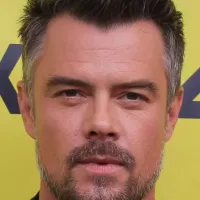Kansas is a Midwestern U.S. state bordered by Nebraska, Missouri, Oklahoma, and Colorado. Named after the Kansas River and the Kansa people, its capital is Topeka, and Wichita is its most populous city. However, the largest urban area is the Kansas City metropolitan area, which spans both Kansas and Missouri. Kansas is a landlocked state with a significant agricultural industry and is known for its vast plains.
1900: The Wonderful Wizard of Oz Published
In 1900, The Wonderful Wizard of Oz, a novel featuring Dorothy Gale from Kansas, was published.
1900: Carrie Nation's First Saloon Vandalism
In 1900, anti-saloon activist Carrie Nation vandalized her first saloon in Kiowa, Kansas.
1901: Origin of Pentecostalism
In 1901, glossolalia was first claimed as the evidence of the baptism of the Holy Spirit at Charles Fox Parham's Bethel Bible College in Topeka, marking a key moment in the development of Pentecostalism.
1903: Patee Theater Opens in Lawrence
In 1903, the Patee Theater, the first film theater in Kansas, opened in Lawrence. It was one of the first of its kind west of the Mississippi River.
February 13, 1905: All-time Low Temperature Recorded
On February 13, 1905, the all-time low temperature of -40 °F (-40 °C) was recorded in Kansas, near Lebanon in Smith County.
May 22, 1907: Plaza Cinema Built in Ottawa
On May 22, 1907, The Plaza Cinema in Ottawa, Kansas, was built, and it is listed by the Guinness Book of World Records as the oldest operating cinema in the world.
1910: Workers' Compensation System Instituted
In 1910, Kansas was the first state to institute a system of workers' compensation.
1911: Regulation of Securities Industry
In 1911, Kansas was the first state to regulate the securities industry.
1912: Women's Suffrage Permitted
In 1912, Kansas permitted women's suffrage, almost a decade before the federal constitution was amended to require it.
1913: Vehicle Registration Required
In 1913, Kansas first required its residents to register their vehicles and display license plates.
1920: 19th Amendment to the U.S. Constitution
Suffrage in all states would not be guaranteed until ratification of the 19th Amendment to the U.S. Constitution in 1920.
1922: Ella Uphay Mowry Runs for Governor
In 1922, Ella Uphay Mowry became the first female gubernatorial candidate in Kansas, running as "Mrs. W.D. Mowry".
1922: KU Awarded National Championship by Helms Foundation
KU was retroactively awarded a national championship by the Helms Foundation for 1922.
1923: KU Awarded National Championship by Helms Foundation
KU was retroactively awarded a national championship by the Helms Foundation for 1923.
1923: Mount St. Scholastica College
Mount St. Scholastica College was founded in Atchison, Kansas in 1923 and later merged with St. Benedict's College to form Benedictine College.
1926: The Jayhawk Theatre Opens
In 1926, The Jayhawk Theatre, an art-deco movie house in Topeka, opened to movie-going audiences.
April 17, 1930: First Use of Permanent Lighting System
On April 17, 1930, the permanent lighting system was first used for an exhibition game between the Independence Producers and the House of David semi-professional baseball team in Independence, Kansas.
April 28, 1930: First Night Game in Professional Baseball
On April 28, 1930, the first night game in the history of professional baseball was played in Independence, Kansas, when the Muscogee (Oklahoma) Indians beat the Independence Producers.
1930: The Fox Theater Built in Hutchinson
In 1930, the Fox Theater in Hutchinson was built and was placed on the National Register of Historic Places in 1989.
1932: Kansas Elects a Democrat to the U.S. Senate
In 1932, Kansas elected a Democrat to the U.S. Senate during Franklin D. Roosevelt's first term as president, marking the beginning of the longest Senate losing streak for either party in the state.
1935: Little House on the Prairie Published
In 1935, Laura Ingalls Wilder's Little House on the Prairie, a well-known tale about Kansas, was published.
1935: Kansas Legislature Adopts The Kansas March
In 1935, the Kansas Legislature adopted The Kansas March as the official state march.
July 24, 1936: Highest Temperature Recorded
On July 24, 1936, the all-time highest temperature of 121 °F (49.4 °C) was recorded in Kansas, near Alton in Osborne County.
1936: Alf Landon Runs for President
In 1936, Governor Alf Landon was a losing Republican candidate for President of the United States.
1936: Roosevelt Carried Kansas
In 1936, Roosevelt carried Kansas.
1936: Moon Over Manifest Setting
The book Moon Over Manifest, which won the 2011 Newbery Medal, takes place during the summer of 1936.
1937: Legalization of Cereal Malt Beverage
In 1937, the sale of cereal malt beverage (also known as 3.2 beer) was legalized in Kansas.
1940: Kansas Backed Republican Presidential Candidate Wendell Willkie
In 1940, Kansas backed Republican Presidential Candidate Wendell Willkie.
1944: Kansas Backed Republican Presidential Candidate Thomas E. Dewey
In 1944, Kansas backed Republican Presidential Candidate Thomas E. Dewey.
1948: Repeal of Constitutional Amendment Prohibiting Alcohol
In 1948, Kansas repealed its constitutional amendment that had prohibited all alcoholic beverages since 1881.
1948: Kansas Supported Dewey
In 1948, Kansas supported Dewey despite the presence of incumbent president Harry S. Truman, who hailed from Independence, Missouri.
1948: Post-Prohibition Legalization of Alcoholic Liquor
In 1948, the first post-Prohibition legalization of alcoholic liquor occurred when the state's constitution was amended.
1952: NCAA Headquarters in Johnson County
In 1952, the National Collegiate Athletic Association (NCAA) was headquartered in Johnson County, Kansas.
1952: Jayhawks Win NCAA Tournament
The Jayhawks won the NCAA tournament in 1952.
1954: St. Benedict's College Wins NAIA Basketball Championship
In 1954, St. Benedict's College won the NAIA Men's Basketball Championship.
1954: Brown v. Board of Education Decision
In 1954, the Supreme Court decision in Brown v. Board of Education of Topeka banned racially segregated schools throughout the U.S., though many Kansas residents opposed the decision.
May 25, 1955: Deadliest Tornado in Kansas
On May 25, 1955, the deadliest tornado in Kansas struck Udall, killing 80 people in and around the city.
November 14, 1956: First Section of Interstate Opened
On November 14, 1956, the first section of Interstate in the nation was opened on Interstate 70 just west of Topeka.
1956: Only Rear License Plates Required
Since 1956, Kansas only requires rear license plates to be displayed on vehicles.
1959: Murder in Holcomb
In 1959, a wealthy farmer and his family were murdered in Holcomb, Kansas; an event later chronicled in Truman Capote's book, In Cold Blood.
1960: Incorporation of Overland Park
In 1960, Overland Park was incorporated and would eventually become the largest city in Johnson County by population and land area.
1964: Lyndon B. Johnson Won the State
In 1964, Lyndon B. Johnson was the only Democrat to win the state since Roosevelt.
1965: In Cold Blood Published
In 1965, Truman Capote's In Cold Blood, a "nonfiction novel" about the 1959 murder of a family in Holcomb, Kansas, was published.
1965: Shockers Appear in Final Four
In 1965, the Wichita State University Shockers men's basketball team appeared in the Final Four.
1967: St. Benedict's College Wins NAIA Basketball Championship
In 1967, St. Benedict's College won the NAIA Men's Basketball Championship.
1970: Shocker Football Team Plane Crash
In 1970, the Wichita State University Shocker football team experienced a tragic plane crash that killed 31 people, including 14 players.
1973: WIBW Becomes Flagship Radio Station for the Royals
From 1973 to 1997 the flagship radio station for the Royals was WIBW in Topeka.
1980: Life Expectancy Increases Compared to National Average
Increases in life expectancy between 1980 and 2013 were below the national average for males and near the national average for females.
1985: Wolf Creek Nuclear Plant Online
In 1985, the Wolf Creek nuclear power plant in Burlington, Kansas came online. It houses a Westinghouse pressurized water reactor and cost over $5 billion to construct.
1986: Liquor-by-the-Drink Becomes Legal
In 1986, Liquor-by-the-drink did not become legal until passage of an amendment to the state's constitution.
1986: Shocker Football Team Disbanded
Wichita State University's football team was disbanded in 1986.
1987: Washburn University Wins NAIA Men's Basketball Championship
In 1987, Washburn University in Topeka won the NAIA Men's Basketball Championship.
1988: Jayhawks Win NCAA Tournament
The Jayhawks won the NCAA tournament in 1988, KU taking the game 71-58.
1989: Bill Snyder Arrives at K-State
In 1989, Bill Snyder arrived to coach at K-State, transforming the football program.
1989: The Fox Theater Placed on the National Register of Historic Places
In 1989, The Fox Theater in Hutchinson was placed on the National Register of Historic Places.
1989: Shockers Win College World Series
In 1989, the Wichita State University Shockers baseball team won the College World Series.
1989: Geodetic Center of North America Relocation
Until 1989, the Meades Ranch Triangulation Station in Osborne County was the geodetic center of North America; the central reference point for all maps of North America.
1990: Sales Tax Collections
In 1990, the total sales tax collections in Kansas amounted to $805.3 million.
1992: State Debt Increase
By June 2004, the state debt was at 3.8% of personal income, having risen from a value of less than 1% in 1992.
1992: Secessionist Movement in Southwest Kansas
In 1992, a short-lived secessionist movement advocated the secession of several counties in southwest Kansas.
1995: Pittsburg State Becomes Winningest NCAA Division II Football Program
In 1995, Pittsburg State University became the winningest NCAA Division II football program.
1996: Bob Dole Runs for President
In 1996, Senator Bob Dole was a losing Republican candidate for President of the United States.
1996: Fort Hays State University Men Win NCAA Division II Title
In 1996, the Fort Hays State University men won the NCAA Division II title with a 34-0 record.
1997: WIBW ends as Flagship Radio Station for the Royals
From 1973 to 1997 the flagship radio station for the Royals was WIBW in Topeka.
1997: K-State Wins Fiesta Bowl
In 1997, the K-State football team won the Fiesta Bowl.
1998: Tax Reduction and Debt Growth
Following a permanent tax reduction in 1998, revenue shortfalls contributed to substantial growth in the state's debt level.
1998: K-State Achieves Undefeated Regular Season
In 1998, the K-State football team achieved an undefeated (11-0) regular season and No. 1 ranking.
1999: Comprehensive Transportation Program
In 1999, Kansas enacted a 10-year Comprehensive Transportation Program, contributing to an expected increase in state debt.
1999: Oil Prices Bottom
In 1999, oil prices bottomed out, but since then, oil production in Kansas has remained fairly constant.
1999: Elimination of Evolution from Teaching Standards
In 1999, the Kansas State Board of Education decided to eliminate evolution from the state teaching standards, a decision that was later reversed.
1999: NCAA Moves to Indianapolis
In 1999, the NCAA headquarters moved from Johnson County, Kansas, to Indianapolis.
1999: Board of Education Approves Changes in Science Curriculum
Twice since 1999 the Board of Education has approved changes in the state science curriculum standards that encouraged the teaching of intelligent design.
2000: Language Spoken at Home
As of the year 2000, English was the most-spoken language in Kansas, with 91.3% of the population speaking only English at home. 5.5% spoke Spanish, 0.7% spoke German, and 0.4% spoke Vietnamese.
2000: Goddard's Population Growth
Since 2000, the population of Goddard has grown by more than 11% per year.
November 2001: Flat Sales Tax Collections During Recession
During the recession from March to November 2001, monthly sales tax collections in Kansas were flat.
2003: Income Tax Brackets
In 2003, Kansas had three income brackets for income tax calculation, ranging from 3.5% to 6.45%.
2003: "Flatter Than a Pancake" Study
In 2003, a tongue-in-cheek study famously declared Kansas "flatter than a pancake", despite the state having a significant topographic relief.
2003: K-State Wins Big 12 Conference Championship
In 2003, the K-State football team won the Big 12 Conference championship.
2003: Sales Tax Collections
In 2003, total sales tax collections in Kansas amounted to $1,630 million, an inflation-adjusted reduction of 10% compared to what they would have been without changes in rates or the economy.
January 2004: Kansas 511 Traveler Information Service Announced
In January 2004, the Kansas Department of Transportation (KDOT) announced the new Kansas 511 traveler information service.
June 2004: State Debt Ranking
As of June 2004, Moody's Investors Service ranked Kansas 14th for net tax-supported debt per capita.
2004: Foreign-Born Population
As of 2004, the population of Kansas included 149,800 foreign-born residents, representing 5.5% of the state's population.
2004: George W. Bush Wins Kansas Electoral Votes
In 2004, George W. Bush won Kansas' six electoral votes by a large margin. Only Wyandotte and Douglas counties supported Democrat John Kerry in that election.
2004: Publication of "What's the Matter with Kansas?"
In 2004, Thomas Frank published his book What's the Matter with Kansas?, examining Kansas's path to a solid Republican state.
2004: Kansas Oil Production
In 2004, oil production in Kansas remained fairly constant, with an average monthly rate of about 2.8 million barrels.
October 1, 2005: Streamlined Sales Tax Adoption
On October 1, 2005, Kansas adopted the "Streamlined Sales Tax" scheme under the governorship of Kathleen Sebelius, resulting in 920 separate sales tax rates.
2005: Constitutional Amendment to Ban Same-Sex Marriage
In 2005, Kansas voters accepted a constitutional amendment to ban same-sex marriage.
2005: Washburn Women Win NCAA Division II Crown
In 2005, the Washburn women won the NCAA Division II crown.
November 2006: Dry Counties in Kansas
As of November 2006, Kansas still had 29 dry counties and only 17 counties had passed liquor-by-the-drink with no food sales requirement.
2006: State Debt Increase
By 2006, the bonded debt in Kansas had increased to $3.83 billion from $1.16 billion in 1998.
2008: Governor Sebelius Vetoed Coal-Fired Energy Plants
In 2008, Democrat Governor Kathleen Sebelius vetoed permits for the construction of new coal-fired energy plants in Kansas.
2008: John McCain Wins Kansas in Presidential Election
In 2008, John McCain won the state of Kansas with 57% of the votes. Douglas, Wyandotte, and Crawford County were the only counties in support of President Barack Obama.
2008: Sam Brownback Presidential Campaign
In 2008, Senator Sam Brownback was a candidate for the Republican party nomination for president.
2008: Jayhawks Win Orange Bowl
In 2008, the Jayhawks won the Orange Bowl, capping a 12-1 season.
2008: Sporting Kansas City Plays at Village West
Since 2008, Sporting Kansas City has played their home games at Village West in Kansas City.
2008: Jayhawks Win NCAA Tournament
The Jayhawks won the NCAA tournament in 2008.
2009: Bill Snyder Returns to K-State
In 2009, Bill Snyder came out of retirement and returned to coach K-State football.
2009: Compromise Plan to Allow Construction of Coal-Fired Plant
In 2009, shortly after Mark Parkinson became governor, he announced a compromise plan to allow construction of a coal-fired plant.
August 2010: Moran Wins Republican Nomination
In August 2010, Moran defeated Tiahrt for the Republican nomination for Brownback's seat in the primary election, and subsequently won the general election against Democrat Lisa Johnston.
2010: Wildcats Advance to Elite Eight
After a 12-year absence, the Wildcats returned to the NCAA tournament in 2008, and advanced to the Elite Eight in 2010.
2010: Brownback's Campaign
During his campaign for the 2010 election, Governor Sam Brownback called for a complete "phase out of Kansas's income tax".
2010: Emporia State Wins NCAA Division II National Championship
In 2010, Emporia State's women's basketball team won the NCAA Division II National Championship.
2010: Sam Brownback Elected Governor
In 2010, Republican Sam Brownback was elected governor of Kansas with 63 percent of the state vote.
2010: State General Fund Debt Load
In fiscal year 2010, the state general fund debt load was $83 million.
2010: Census Numbers
The 2010 census was conducted.
May 2011: Elimination of the Kansas Arts Commission
In May 2011, Brownback eliminated the Kansas Arts Commission, making Kansas the first state without an arts agency.
July 2011: Plans to Close Social and Rehabilitation Services Branch
In July 2011, Brownback announced plans to close the Lawrence branch of the Kansas Department of Social and Rehabilitation Services as a cost-saving measure.
2011: Minority Population
As of 2011, 35.0% of Kansas's population younger than one year of age belonged to minority groups.
2011: K-State Football Finishes Second in Big 12
In 2011, K-State football finished second in the Big 12 and earned a berth in the Cotton Bowl.
2011: Moon Over Manifest Wins Newbery Medal
In 2011, Moon Over Manifest by Kansan Clare Vanderpool won the Newbery Medal for children's literature.
2011: Pittsburg State Wins NCAA Division II National Title
In 2011, Pittsburg State University claimed the NCAA Division II national title in football.
2011: Sporting Kansas City Moves to Children's Mercy Park
In 2011, Sporting Kansas City moved to their new home, a soccer-specific stadium now known as Children's Mercy Park.
May 2012: Kansas Senate Bill Substitute HB 2117 Signed into Law
In May 2012, Governor Brownback signed the Kansas Senate Bill Substitute HB 2117 into law, which trimmed income tax, eliminated some corporate taxes, and created pass-through income tax exemptions.
2012: Boeing Manufacturing Ends
In 2012, Boeing ended its decades-long history of manufacturing in Kansas.
2012: K-State Wins Big 12
In 2012, the K-State football team won the Big 12 again.
2013: Boeing Manufacturing Ends
In 2013, Boeing ended its decades-long history of manufacturing in Kansas.
2013: FC Kansas City Inaugural Season
In 2013, FC Kansas City, a charter member of the National Women's Soccer League, played its first season on the Kansas side of the metropolitan area.
2013: Life Expectancy in Kansas
In 2013, males in Kansas had an average life expectancy of 76.6 years, compared to the national average of 76.7 years. Females in Kansas had an average life expectancy of 81.0 years, compared to the national average of 81.5 years.
2013: Shockers Appear in Final Four
In 2013, the Wichita State University Shockers men's basketball team appeared in the Final Four.
2013: Tax Increase to a level close to what it was before
On June 6, 2017, a coalition of Democrats and newly elected Republicans overrode [Brownback's] veto and implemented tax increases to a level close to what it was before 2013.
2013: Tax Overhaul Starts
Starting in 2013, the Kansas's "ambitious tax overhaul" trimmed income tax, eliminated some corporate taxes, and created pass-through income tax exemptions.
September 2014: Greg Orman Challenges Pat Roberts
In September 2014, it was reported that independent Greg Orman garnered enough bipartisan support to challenge the reelection bid of Republican Pat Roberts for Senator.
2014: Shockers Enter NCAA Tournament Unbeaten
In 2014, the Wichita State University Shockers men's basketball team entered the NCAA tournament unbeaten.
2014: Life Expectancy Increase
Male life expectancy in Kansas between 1980 and 2014 increased by an average of 5.2 years, and female life expectancy increased by 4.3 years.
2014: Pew Religious Landscape Survey
The 2014 Pew Religious Landscape Survey showed the religious makeup of adults in Kansas was as follows: 57% Protestant, 18% Catholic, 1% Mormon, 1% Jehovah's Witness, 20% unaffiliated, 1% Buddhist, and 2% other religions.
2015: Kansas as a Productive Agricultural State
In 2015, Kansas was among the most productive agricultural states, producing high yields of wheat, corn, sorghum, and soybeans. In addition to agriculture, Kansas also had an extensive aerospace industry.
2015: Job Growth Rate
In 2015, the job growth rate in Kansas was 0.8%, with only 10,900 total nonfarm jobs added that year.
April 2016: Unemployment Rate
As of April 2016, the unemployment rate in Kansas was 4.2%.
2016: Wheat Harvest
During 2016, Kansas farmers of conventionally grown wheat farmed 8.2 million acres and harvested an average of 57 bushels of wheat per acre.
2016: Governor Brownback's Approval Rating
In 2016, Governor Brownback earned the title of "most unpopular governor in America" with only 26 percent of Kansas voters approving of his job performance.
2016: Average Cost of Running a Farm
In 2016, the average cost of running a farm in Kansas was $300,000.
2016: Employer Establishments
Total Number of employer establishments in 2016: 74,884
February 2017: Budget Shortfall
In February 2017, Kansas faced a $350 million budget shortfall due to the tax cuts implemented in 2013.
February 2017: S&P Lowers Kansas's Credit Rating
In February 2017, S&P Global Ratings lowered Kansas's credit rating to AA−.
February 2017: Bi-Partisan Coalition Presented a Bill
In February 2017, a bi-partisan coalition presented a bill that would repeal the pass-through income exemption and raise taxes to make up for the budget shortfall.
February 2017: Budget Shortfall and Credit Rating Downgrade
In February 2017, the State of Kansas had a $350 million budget shortfall, and S&P downgraded Kansas's credit rating to AA−.
June 6, 2017: Tax Increases Implemented
On June 6, 2017, a coalition of Democrats and newly elected Republicans overrode Brownback's veto and implemented tax increases to a level close to what it was before 2013.
June 2017: Brownback's Tax Overhaul Described as "most aggressive experiment in conservative economic policy"
In a June 2017 article in The Atlantic, Brownback's tax overhaul was described as the United States' "most aggressive experiment in conservative economic policy".
2017: FC Kansas City Folding
After the 2017 season, FC Kansas City folded, after playing on the Missouri side since 2013.
2017: Life Expectancy Range Across Kansas Counties
Using 2017-2019 data, the Robert Wood Johnson Foundation calculated that life expectancy for Kansas counties ranged from 75.8 years for Wyandotte County to 81.7 years for Johnson County.
2018: Wildcats Advance to Elite Eight
After a 12-year absence, the Wildcats returned to the NCAA tournament in 2008, and advanced to the Elite Eight in 2018.
2018: Agriculture
As of 2018, there were 59,600 farms in Kansas, and 86 (0.14%) of which were certified organic farms.
2018: Laura Kelly Defeats Kris Kobach
In the 2018 election for Governor, Democrat Laura Kelly defeated former Secretary of State of Kansas Kris Kobach with 48.0% of the vote.
July 1, 2019: Kansas Population Estimate
The United States Census Bureau estimated that the population of Kansas was 2,913,314 on July 1, 2019, a 2.11% increase since the 2010 United States census.
2019: Wind Energy Production in Kansas
In 2019, Kansas had an installed capacity of about 6,100 Megawatts from nearly 3,200 wind turbines, with wind generating the largest share of electricity from the state at 41%.
2019: Kansas and US Life Expectancy
In 2019, life expectancy for the state as a whole was 78.5 years and life expectancy for the United States as a whole was 78.8 years.
2019: Agreement to Stop Financial Incentives
In 2019, the governors of Kansas and Missouri signed an agreement to stop offering financial incentives to businesses to move across the state border.
2020: Kansas Population According to Census
According to the 2020 census, the population of Kansas was 2,940,865, making it the 36th most populous state in the U.S.
2020: Population at the 2020 Census
At the 2020 census, the population of Kansas was 2,937,880.
2020: Racial and Ethnic Makeup
At the 2020 census, the racial and ethnic makeup of Kansas was 75.6% White, 5.7% African American, 2.9% Asian American, 1.1% Native American, 0.1% Pacific Islander, 4.9% some other race, and 9.5% two or more races.
2020: Wind Energy Production Expansion
During 2020, an additional 700 Megawatts of wind energy capacity was scheduled to come online in Kansas.
2020: Kansas Ranked as the 13th Hardest State to Vote In
In a 2020 study, Kansas was ranked as the 13th hardest state for citizens to vote in.
2021: Racial Makeup of Population
According to the 2021 United States census estimates, the racial makeup of the population was: White American, non-Hispanic (74.7%), Hispanic or Latino (12.7%), Black or African American (6.2%), Native Hawaiian or other Pacific Islander (0.1%), two or more races (3.3%), Asian (3.2%), and American Indian and Alaska Native (1.2%).
May 12, 2022: Kansas Legalizes Sports Betting
On May 12, 2022, Governor Laura Kelly signed Senate Bill 84, legalizing sports betting in Kansas, making it the 35th state to approve sports wagering in the US.
August 2022: Kansas Voters Rejected the Value Them Both Amendment
In August 2022, Kansas voters rejected the controversial Value Them Both Amendment, which would have eliminated the right to an abortion in the state constitution.
2022: Homeless Population Estimate
According to HUD's 2022 Annual Homeless Assessment Report, there were an estimated 2,397 homeless people in Kansas.
2022: Religious Makeup
In 2022, the Public Religion Research Institute (PRRI)'s study revealed 74% of the total population were Christian; among them, 59% were Protestant, 13% Catholic, and 2% Mormon. The religiously unaffiliated were 23% of the population, Unitarian Universalists 1%, and New Agers 1%.
2022: Kansas Governor's Statement on Chiefs' Stadium
In 2022, the governor of Kansas stated that the agreement to stop financial incentives did not include enticing the Chiefs football team to move their arena from Missouri to Kansas.
2022: Jayhawks Win NCAA Tournament
The Jayhawks won the NCAA tournament in 2022.
2023: Gross Domestic Product and Per Capita Income
In 2023, Kansas's total gross domestic product was $226 billion, and the state's per capita income was $63,732.
June 2024: Stadium Design Rendering Released
In June 2024, an architecture firm in Kansas released a video featuring 3D renderings of a potential design for a domed stadium in Kansas City, Kansas.
February 2025: Talks Intensifying with Chiefs
In February 2025, Kansas House of Representatives member Sean Tarwater said that talks with the Chiefs were intensifying, and Kansas was close to "bringing over at least one team, maybe two".
March 2025: Chiefs' and Royals' Potential Move
As of March 2025, the Chiefs haven't commented directly on a move to Kansas, but the Royals have expressed interest in building a riverfront stadium on the junction between the Kansas River and Missouri River.
Mentioned in this timeline

Basketball is a team sport played on a rectangular court...

Barack Obama the th U S President - was the...

George W Bush the rd U S President - is...
India officially the Republic of India is a South Asian...

John Kerry is an American politician and diplomat notable for...

The Boeing Company is a multinational corporation and one of...
Trending

3 minutes ago Eddie Vedder's vulnerability shines in 'Matter of Time,' activism and EB research highlighted.
3 minutes ago Gold and Silver Market: Conflict and Uncertainty Impact Prices, ETF Investment Advised.
1 hour ago Smoothie King Employees Fired for Refusing Service to Customer Wearing Trump Hoodie.

1 hour ago Sydney Sweeney stuns fans with daring lingerie and tights poses for Syrn.

1 hour ago Justin Timberlake Sues to Block Release of DWI Arrest Video in Sag Harbor

1 hour ago Josh Duhamel Opens Up About His Divorce with Fergie, Expresses No Regrets.
Popular

Jesse Jackson is an American civil rights activist politician and...

Hillary Diane Rodham Clinton is a prominent American politician lawyer...

Jim Carrey is a Canadian-American actor and comedian celebrated for...

XXXTentacion born Jahseh Dwayne Ricardo Onfroy was a controversial yet...

Michael Joseph Jackson the King of Pop was a highly...

Bill Clinton served as the nd U S President from...


